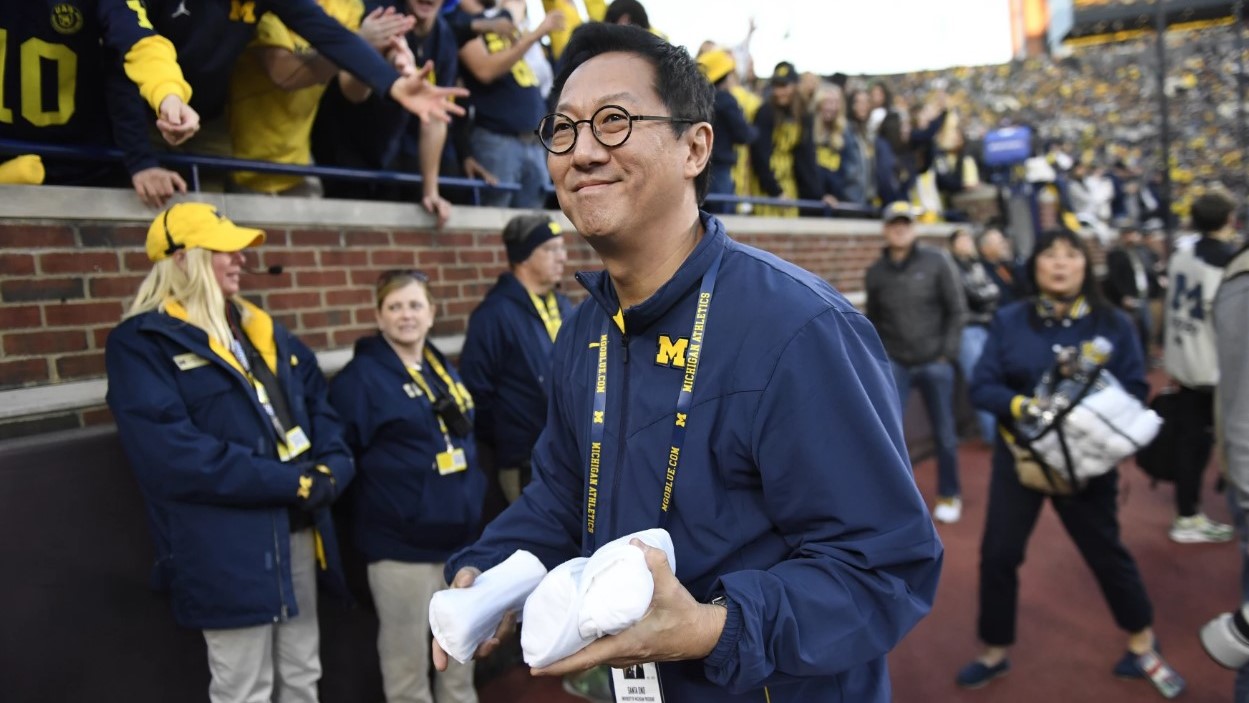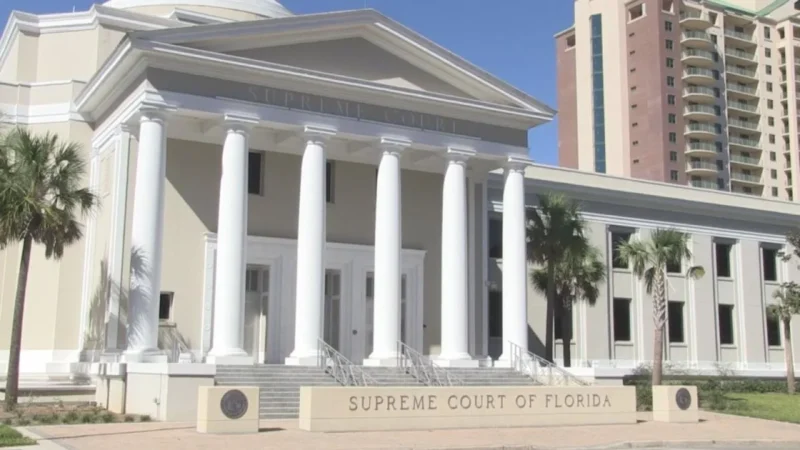While facing opposition from some conservatives because of past statements on issues such as diversity, equity and inclusion, former University of Michigan President Santa Ono was selected Tuesday to become president of the University of Florida.
The UF board of trustees unanimously approved hiring Ono as the school’s 14th president, succeeding former President Ben Sasse, who resigned last summer.
“I believe he is fully aligned with Florida’s values and vision for higher education,” said board Vice Chairman Rahul Patel, who headed a presidential search committee that advanced Ono as the sole finalist for the job.
The state university system’s Board of Governors must still approve the appointment.
Saying he’s focused on leading a university that “unites people around shared values, merit, freedom of thought and excellence,” Ono told the board he’s inspired by the school’s research in artificial intelligence, agriculture, space and cardiovascular science. He said he shares Florida’s vision for higher education as a move away from “ideological bias” and an “activist-driven culture.”
“The goal is not to replace one orthodoxy with another. It is to restore balance, to protect the pursuit of truth and create a university environment where all students can thrive,” Ono said. “Florida is showing the nation that it’s possible to elevate academic excellence without ideological indoctrination. That’s the work I want to lead.”
Most of the trustees’ questions Tuesday focused on issues such as diversity, equity and inclusion, campus protests, faculty recruitment and pay and rankings.
Ono, who had a $1.3 million-a-year contract at the University of Michigan, has drawn scrutiny over that school’s decision to end diversity, equity and inclusion, or DEI, efforts, its removal of a pro-Palestinian protest encampment and his lack of response to cuts from the Trump administration.
But some prominent conservatives raised concerns about Ono’s selection.
Before Tuesday’s meeting, Christopher Rufo, a senior fellow at the conservative Manhattan Institute and an appointee of Gov Ron DeSantis to the New College of Florida board of trustees, called for the presidential search to be restarted as Ono previously supported DEI programs and other issues anathema to many people on the right.
“Ono rose through the ranks not because of a reputation for reform, but for reliably toeing the ideological line that has defined the status quo in academia for the past decade,” Rufo wrote in an editorial. “He has expressed support for seemingly every left-wing fad, from ‘systemic racism’ and ‘climate justice’ to DEI and affirmative action. He puts ‘he/him’ gender pronouns in his Instagram profile and gladly recites ‘land acknowledgements,’ which promote the idea that Europeans are illegitimate occupiers of ‘unceded’ native territory.”
Others who signaled opposition to Ono’s selection included U.S. Sen. Rick Scott, R-Florida; Congressman Byron Donalds, a Naples Republican who is running for governor in 2026; and congressman Greg Steube, a Sarasota Republican.
Ono responded to the concerns in his opening remarks Tuesday.
“We have all seen what happens when universities are handed over to political activists and grievance entrepreneurs,” Ono said. “America needs leaders grounded in scholarship, not ideology.”
Ono defended his efforts to combat antisemitism at the University of Michigan and vowed that DEI programs won’t return to the University of Florida. DeSantis has made a high-profile issue of driving DEI programs off campuses.
“I fully support the reform signed into law by Gov. DeSantis and the steps already taken by this board, the Board of Governors and this institution,” Ono said.
Ono said his thoughts on DEI started to evolve before applying for the Florida job, as he witnessed how good intentions “began to stifle open dialogue in the classrooms, cafeterias and in the residence halls.”
He called antisemitism “uniquely virulent and a persistent threat, especially on college campuses over the past year and a half.”
“It too often hides behind the language of political critique,” Ono said. “But its effect is unmistakable, intimidation, isolation and fear for Jewish students and faculty, and that is unacceptable. That said, I reject all forms of religious discrimination or any form of discrimination.”
Ono also said universities have a responsibility to counter threats from China, Russia and Iran and other adversaries “working systematically to undermine free societies, including our own.”
Ono served as University of Michigan president from 2022 until early this month, after the UF search committee announced that he was the only finalist for the Gainesville job. Sasse, a former U.S. senator from Nebraska, abruptly stepped down after less than two years leading UF.
Kent Fuchs, a former UF president, has served as interim president.
A molecular immunologist, Ono also has served as president and vice chancellor of the University of British Columbia, president of the University of Cincinnati and senior vice provost at Emory University.
Ono pointed to goals at UF of such things as bolstering research, the school’s endowment, its national rankings and athletic programs.
The only speaker to address the trustees on Tuesday, Michael Okun, the director of the university’s Norman Fixel Institute for Neurological Diseases and a member of the presidential search committee, said committee members looked for a person who was respected within and outside academia and who could speak with students, faculty, donors and lawmakers.
“He’s deeply committed, and he brings with him a track record of excellence in research, teaching and engagement at every level,” Okun said of Ono.
Okun added that “our elected leaders are going to love working with this guy.”






